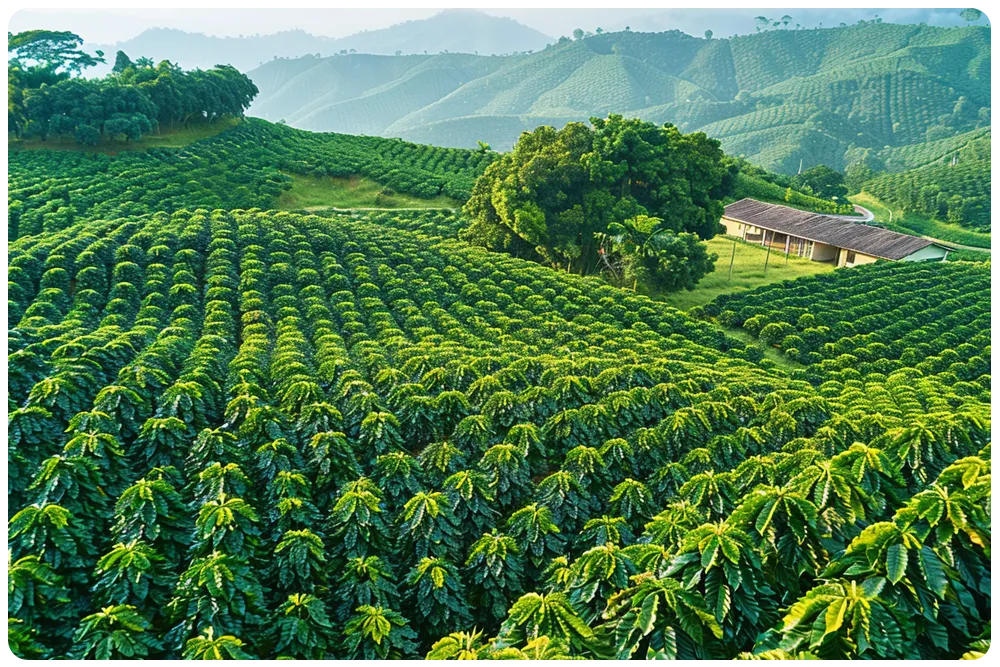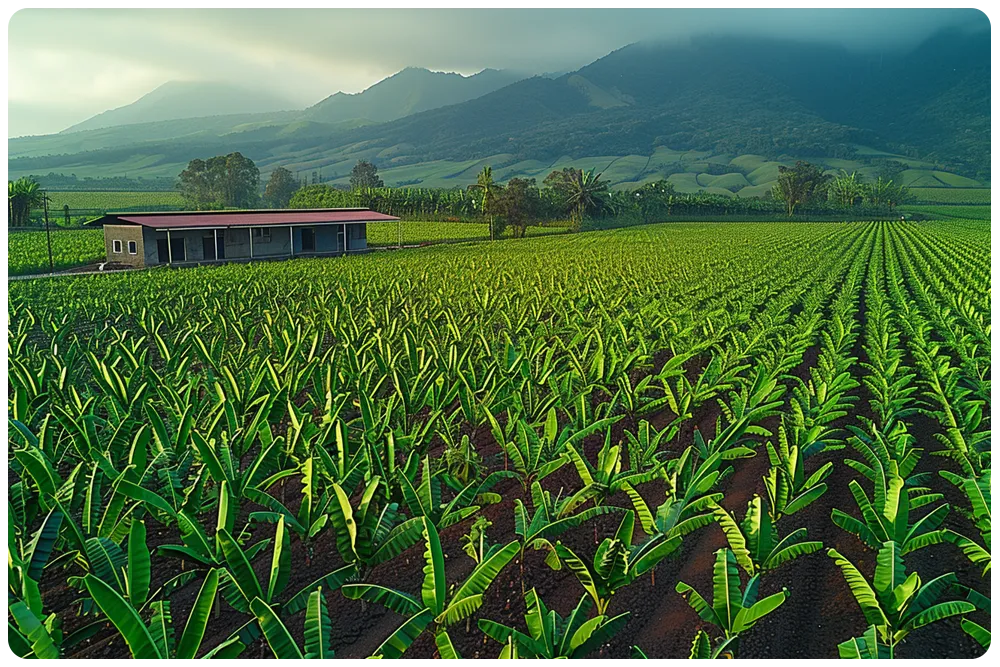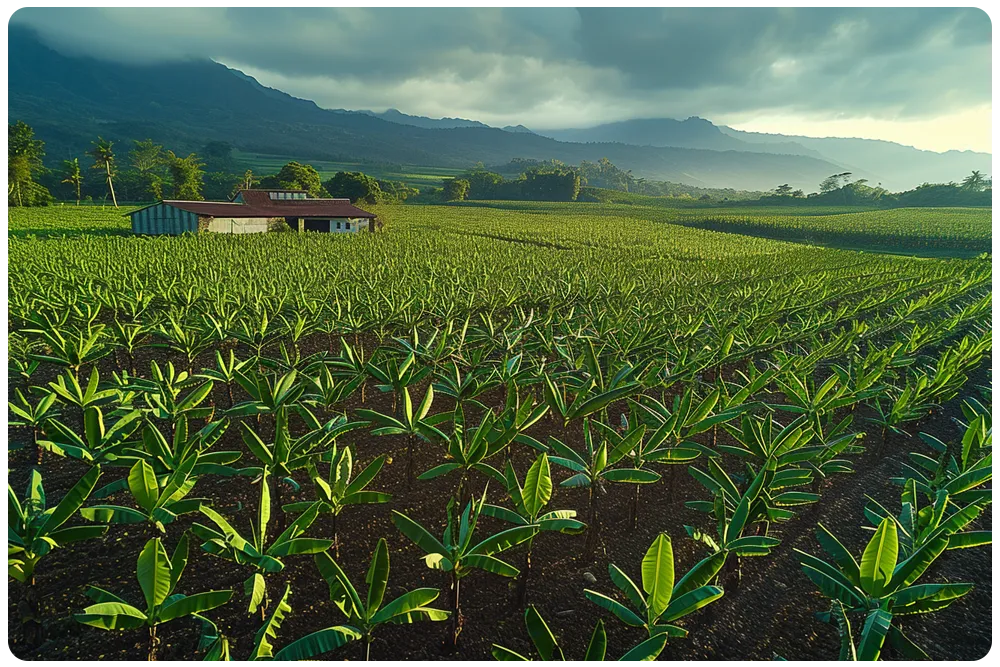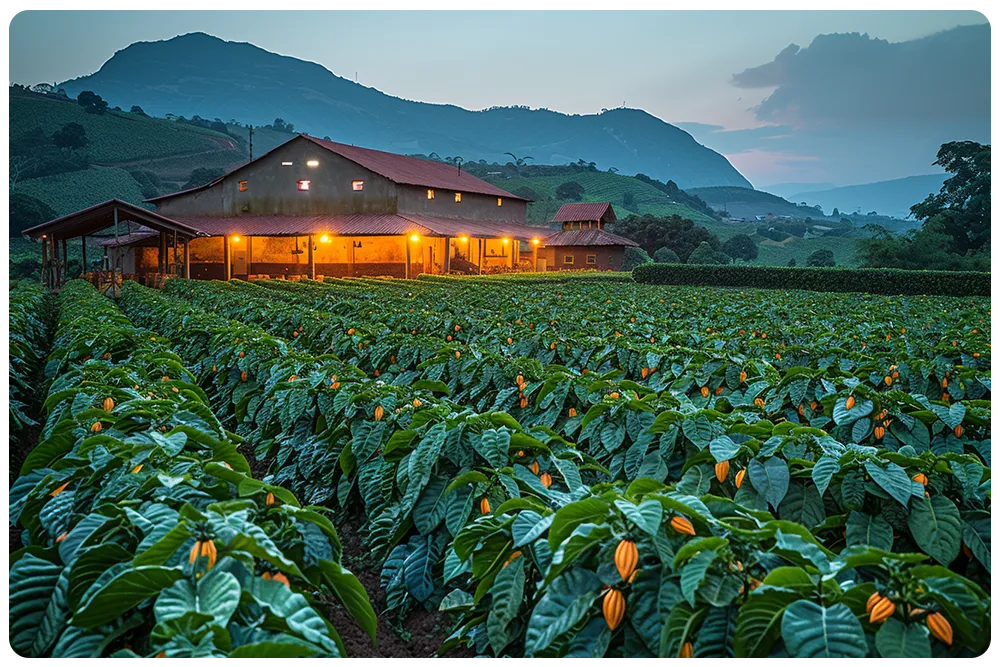Explore the power of drone technology in farming. Learn how drones facilitate eco-friendly crop management, strengthen yield, and mitigate agricultural implications.
Welcome to Drone Farm
We offer a comprehensive range of agricultural drone services. With years of experience, we’ve harnessed our expertise to deliver high-quality services to our clients. Our team provides full support at every stage. Choose us for top-tier Drone Farming experiences!

Contents
- 1. How can drones aid in farm sustainability?
- 2. Reducing environmental impact through drone usage
- 3. Can drones help in monitoring farm emissions?
- 4. Drone technology contributing to farm sustainability
- 5. Environmental benefits of using drones in farming

1. How can drones aid in farm sustainability?
How Can Drones Aid in Farm Sustainability?
The use of drone technology in agriculture offers a modern and effective solution to ensuring farm sustainability. With their diverse array of applications, drones provide invaluable assistance in the optimization of crop production and the enhancement of farm management strategies.
Here’s how drones contribute to a more sustainable and eco-friendly farming practice:
- Monitoring vegetation health: By capturing high-resolution aerial images, a drone can offer an overview of crop health. It can accurately spot areas affected by disease or pests, allowing for rapid, targeted treatments. This minimizes the use of pesticides, contributing to both environmental protection and cost savings.
- Tracking crop growth: Through regular drone flights, farmers can track crop growth and react promptly to anomalies. This ensures optimal usage of resources, reducing waste and enhancing productivity.
- Inspecting irrigation systems: Drones can monitor irrigation infrastructure to detect leaks or inefficiencies. This aids water conservation—a critical part of sustainable farming.
- Reducing soil erosion: With their precise imaging capabilities, drones can map topographical changes and identify potential erosion risks. This enables preventative measures, thereby safeguarding soil health and long-term productivity.
- Supporting wildlife conservation: Drones confer the ability to observe wildlife without disturbing their habitats, enhancing the farm’s cohabitation with local ecosystems.
By integrating drone technology, farms can not only enhance their yield but also align with progressive sustainability practices. The ability of a drone to perform timely scans, coupled with its application specificity, places this tool at the forefront of eco-friendly and efficient farming. With potential to reshape agriculture, the consistent rise of drone usage signals a shift towards more sustainable and responsible farming.
Reducing Farm’s Environmental Impact with Drones
A drone’s multifaceted applications extend beyond crop surveillance, providing viable solutions for reducing a farm’s environmental impact.
- With accurate imaging, drones can help identify distressed areas and facilitate exact pesticide application. This method significantly lessens the overall use of harmful chemicals, making farming practices more environmentally conscious.
- The ability of drones to monitor and inspect irrigations systems means less water wastage and more efficient water management.
- In terms of soil health, drones can detect signs of erosion or over-farming, enabling faster reaction times and preventing long-term land damage.
In conclusion, the effective integration of drone technology in farming practice holds significant potential to minimize environmental footprint and promote sustainable agricultural practices.
2. Reducing environmental impact through drone usage
Reducing environmental impact through drone usage
The transformative capabilities of a drone in the realm of agriculture vividly exhibit in its role towards the reduction of environmental footprints. Advanced drone technology propels smart farming, transcending traditional agriculture paradigms, and taking the industry’s sustainability to unprecedented levels.
From optimizing resource utilization to a more precise crop inspection, a drone customizes its functionalities to cater to various farm needs and management strategies in a more sustainable manner. Enumerated below are some ways in which drones significantly contribute to eco-friendly farming practices.
- Efficient Water Management: Drones equipped with infrared cameras or multispectral sensors can detect early signs of plant distress, pinpointing areas that may require more or less hydration. This type of data allows farmers to adapt their irrigation techniques with precision, therefore, decreasing water waste.
- Optimized Fertilizer Use: The concise imagery and mapping generated by a drone can indicate parts of the field that are excessively fertile or lacking necessary nutrients. Such insights enable farmers to make informed decisions regarding fertilizer application, minimizing overuse and consequent run-offs contaminating local water sources.
- Reduced Fossil Fuel Consumption: Traditional sowing, fertilizing, or spraying methods can be time-consuming and often entail the extensive use of machinery that runs on fossil fuels. Drones can cover large swathes of land rapidly, efficiently reducing the reliance on such energy-intensive practices.
- Disease Detection: Early detection of crop illness is another area where drone intervention can have remarkable effects. By identifying potential disease breakouts and alerting farmers, the drone fosters a proactive approach. This method eschews blanket pesticide application, promoting targeted treatments, and thus maintaining the local biodiversity.
These examples just touch the iceberg’s tip of how the use of drones reconciles agricultural growth with environmental sustainability. By integrating drone technology into everyday farming practices, farmers have a unique opportunity to tackle climate change while also augmenting their crop yields and operational efficiency. Continuing research and advancements ensure a drone’s pivotal role in shaping sustainable, smart farming in the time to come.


3. Can drones help in monitoring farm emissions?
Unleashing the Potential of Drones in Monitoring Farm Emissions
As our society becomes more mindful of its environmental footprint, drones are emerging as a powerful tool for farmers seeking an efficient and sustainable way to manage their land. At the cutting edge of agricultural technology, these advanced machines play a pivotal role in effectively monitoring farm emissions, thereby aiding in reduced environmental damage.
Here’s how a drone can contribute immensely to observing and minimizing farm emissions:
- Real-Time Emission Monitoring: Armed with advanced sensors, a drone can monitor greenhouse gas emissions in real time, providing crucial data about methane and carbon dioxide levels. This data helps farmers identify hotspots that need immediate attention.
- Precision Agriculture: By utilizing a drone’s superior surveillance, farmers can implement precision agriculture techniques. These include specification of fertilizer application and careful management of crop nutrients, thereby reducing excessive emissions.
- Minimizing Soil Disturbance: To minimize soil disturbance, which expels carbon dioxide into the atmosphere, careful planning and execution of farming practices is necessary. Drone technology provides detailed imagery and soil data, enabling better decision-making.
How Drones are Paving the Way for Greener Farming Practices
Environmental sustainability is no longer an option, but a necessity in modern agriculture. Enter the drone, a versatile innovation that promises to transform conventional farming practices by aiding in the reduction of a farm’s environmental impact.
Here’s a deep-dive into the positive implications of deploying a drone in your farm’s strategy for environmental conservation:
- Data-Driven Insights: With real-time monitoring of carbon emissions, the drone becomes a catalyst for actionable, data-driven farm management. Insights about emission hotspots empower you to adopt effective control measures.
- Efficient Resource Utilization: The drone revolutionizes precision agriculture by creating precise soil maps and giving detailed crop health analysis. This allows for targeted fertilizer application, reducing runoff into water bodies and preserving natural resources.
- Soil Health Preservation: Drones provide a bird’s-eye view of your fields, enabling careful planning that minimizes soil disruption and reduces CO2 emissions. By reducing soil tillage, they contribute to carbon sequestration and enhanced soil health.
4. Drone technology contributing to farm sustainability
Drone Technology: Catalyzing Farm Sustainability
The advent of drone technology within the farming landscape has acted as a catalyst towards overall agricultural sustainability. This chapter explores how this innovative tool, the drone, aids in enhancing farm efficiencies and reducing environmental impact, laying the groundwork for sustainable farming practices.
The contribution of the drone is impressive. Used singularly, it equips farmers with invaluable data, increasing their ability to monitor, manage, and optimize their agricultural practices.
1. Streamlined Crop ManagementA drone provides meticulous aerial surveillance of crops, enabling farmers to monitor plant health, grow patterns and environmental conditions. This significantly enhances decision-making regarding crop irrigation, fertilization, and pest control.
2. Reduced Environmental ImpactThrough precision agriculture, a drone ensures optimal utilization of resources. For instance, it can identify patches of the field requiring water or pesticide treatment, thereby reducing wastage and minimizing environmental harm.
3. Enhanced Yield PredictionWith accurate data on crop health and growth conditions, the drone supports improved yield prediction. This contributes to better financial planning and risk management for the farmer.
4. Early Detection of Crop DiseasesCrucially, the drone facilitates early detection of crop illnesses, allowing timely intervention and minimizing crop damage. Through thermal sensors and spectral analysis, the drone identifies potential threats, helping farmers act proactively to prevent significant losses.
Hence, the agricultural drone serves as an influential tool towards sustainable farming, offering tangible benefits in crop management, resource utilization, yield prediction, and disease detection. The sustainable farming practices propelled by this technology hold significant promise for the future of agriculture.
The Drone: Shaping the future of Sustainable Agriculture
As we delve further into the role of a drone in enabling sustainable farming, it’s evident that this transformative technology has the potential to revolutionize agricultural practices. Integrating drone usage within farming operations enhances decision-making, optimizes management strategies, and most importantly, significantly reduces the environmental footprint of farming.
Indeed, with its diverse applications, this singular drone has emerged as a presenter of modern, efficient, and sustainable agriculture.


5. Environmental benefits of using drones in farming
Environmentally Friendly Growth with Drones in Agriculture
Purveying to the idea of sustainable agriculture, drone technology is facilitating farmers in employing environmentally conscious practices seamlessly. The incorporation of a drone in your agricultural operations can significantly reduce your farm’s adverse ecological impact in various ways:- Precision application of fertilizers and pesticides: A drone enables targeted spray of fertilizers and pesticides on your crops, eliminating excess runoff into nearby natural water bodies. Precision agriculture using drone technology ensures that the chemicals are applied exactly where needed, thereby reducing overall usage and its environmental footprint.
- Irrigation efficiency: Drone equipped with thermal cameras can determine varying levels of moisture across your field. This can drastically enhance irrigation management, enabling targeted watering and thereby conserving a significant amount of water.
- Minimize soil erosion: The same drone that efficiently applies your fertilizers can map your fields in detail. This detailed data can help design farm activities that limit soil erosion, such as precise tilling and planting directions.
- Early detection of crop illness: A drone allows you to monitor crops in real-time, enabling early detection of diseases. Early intervention can mitigate rapid disease spread and potential damage to ecosystems.